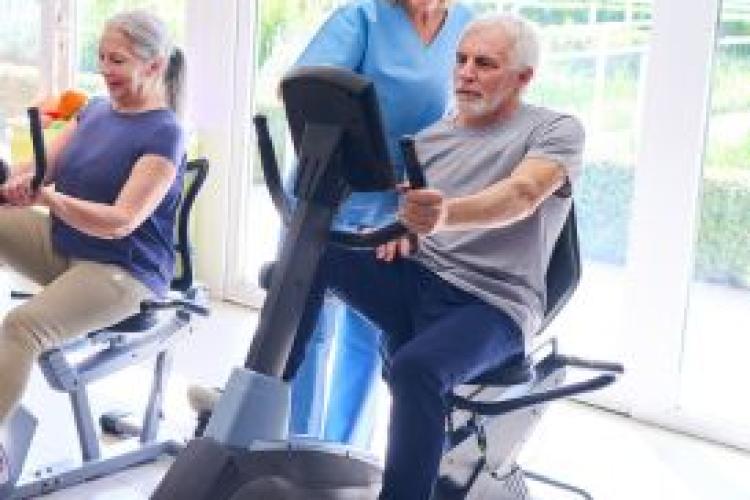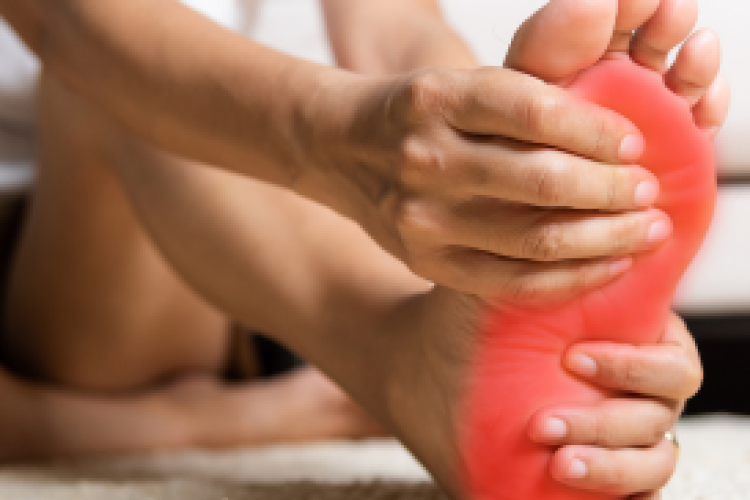Leaving the sleep disorder untreated can lead to serious health problems.
Sleep apnea is a serious sleep disorder which causes repeated breathing interruptions during sleep. Sleep apnea impacts a person’s quality of life, increases the risk of many chronic illnesses and raises the risk of accidents. Fortunately, there are treatments for sleep apnea that can improve your health and quality of life, says Montefiore Nyack Hospital sleep specialist Anita Bhola, MD.
Sleep apnea occurs when muscles in the upper airways relax during sleep. This causes tissues in the upper airways, to cave in, blocking the airways. When this happens, oxygen levels in the body temporarily drop, causing the person to repeatedly stir and awaken.
Symptoms and Impact of Sleep Apnea
Most cases of sleep apnea are undiagnosed. Symptoms can include:
- Snoring (although not everyone who snores has sleep apnea)
- Breathing pauses during sleep
- Excessive daytime sleepiness
- Drowsy driving
- Frequent urination at night
- Decreased sex drive
- Erectile dysfunction in men
- Morning headaches
- Poor memory and concentration
“Sleep apnea is often missed in women, because they are less likely to have classic symptoms such as snoring, and more likely to report depression, anxiety, insomnia and daytime tiredness,” Dr. Bhola said.
Untreated sleep apnea can affect a person’s job productivity by causing lack of motivation, lateness and even absenteeism. It can also impact relationships, since snoring can disrupt a partner’s sleep.
Sleep apnea increases the risk of chronic diseases such as high blood pressure, type 2 diabetes, heart disease, atrial fibrillation, stroke and mood disorders. “Sleep apnea has been linked to Alzheimer's, dementia and even cancer,” Dr. Bhola said. Drivers with untreated sleep apnea are at higher risk for drowsy driving-related crashes.
Diagnosis and Treatment
If you have symptoms of sleep apnea, you will be referred to a sleep specialist. A diagnosis of sleep apnea needs to be confirmed with a formal sleep test at a sleep center. Electrodes and monitors are placed on certain parts of your body to analyze body functions such as brain waves, breathing and heart rate while you sleep.
In addition to weight loss, there are a number of conservative treatments, including devices that help to keep you off your back during sleep, and nasal dilator strips such as Breathe Right.
However the “gold standard” of sleep apnea treatment is with CPAP, also called continuous positive airway pressure. This is a machine that delivers air under pressure to the upper airway by way of a nose or face mask, keeping the airway open during sleep.
CPAP is effective in eliminating snoring, decreasing daytime sleepiness, and improving blood pressure and overall quality of life. However, some people may find it uncomfortable, or don’t like sleeping with something on their face. Patients who can’t sleep with CPAP may be helped by learning relaxation techniques. In some cases Dr. Bhola may prescribe melatonin or a low-dose sleeping pill for several weeks until a person gets used to the device.
Other treatment options for people with mild sleep apnea may include ear, nose and throat surgery, or a custom fitted oral appliance made by dental sleep specialist.
People with moderate or severe sleep apnea patients who have tried and failed CPAP could be candidates for Inspire, an FDA- approved device that is implanted under the skin beneath the collarbone. It delivers stimulation to key airway muscles during sleep, allowing the airway to remain open.



 Upcoming Events
Upcoming Events



